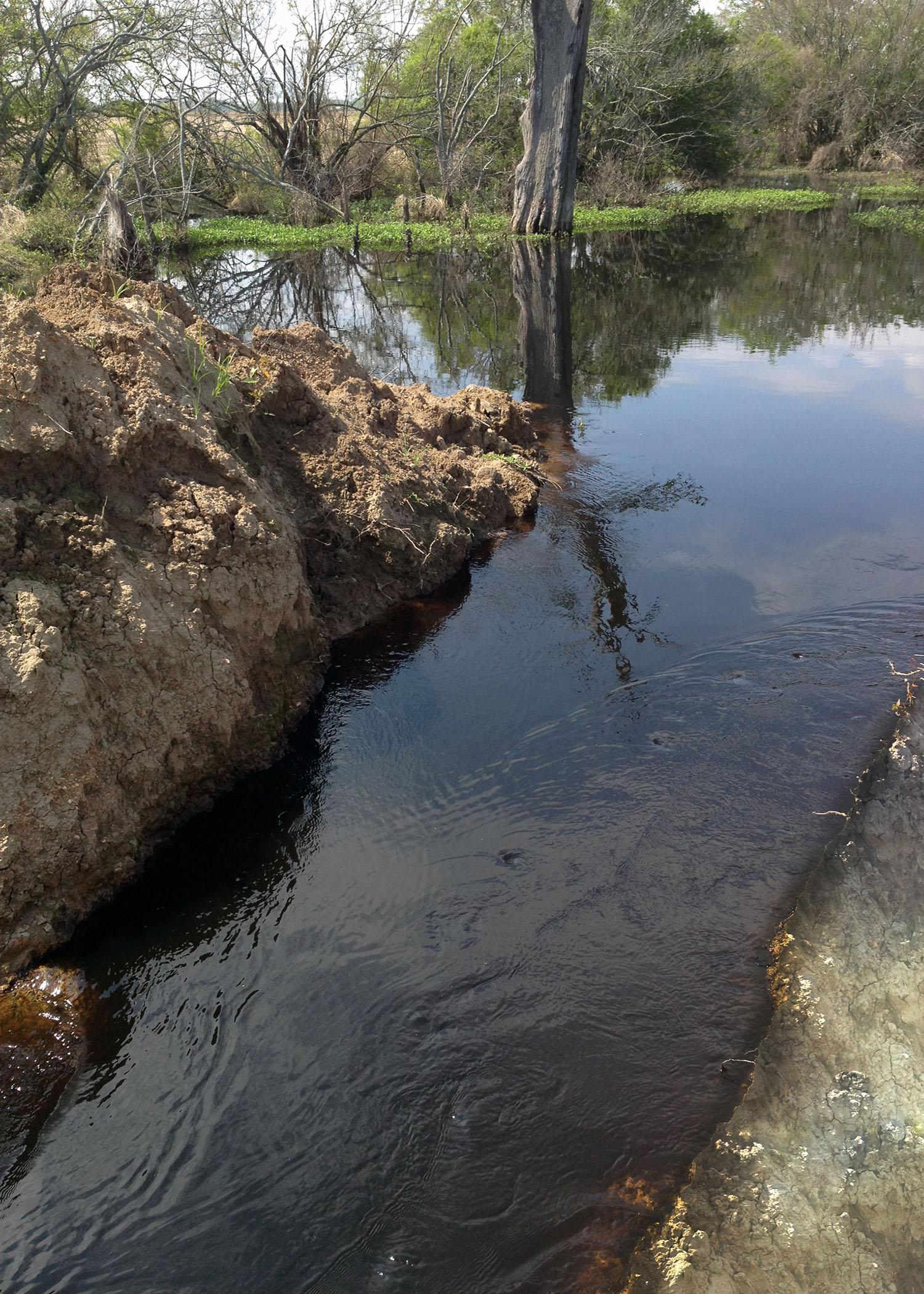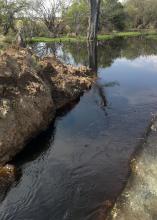Information Possibly Outdated
The information presented on this page was originally released on December 19, 2014. It may not be outdated, but please search our site for more current information. If you plan to quote or reference this information in a publication, please check with the Extension specialist or author before proceeding.
Are we compromising our local water supply?
By Beth Baker
Department of Wildlife, Fisheries and Aquaculture
Mississippi State University
MISSISSIPPI STATE -- A simple step toward improving water quality is as close as the home bathroom cabinet.
Many people take medications, whether prescribed or over-the-counter. Many also use a variety of personal care and household products, such as perfumes, hand sanitizer, sunscreens and cleaners.
When used as directed, the benefits of these products include good health, good hygiene and clean homes. However, use of these products in ways other than they were intended could be dangerous to us, to our water resources and to animals using those resources. When these products are flushed down the toilet or rinsed down the drain, they often end up back in our water supply.
What are PPCPs?
The Environmental Protection Agency (EPA) describes Pharmaceuticals and Personal Care Products (PPCPs) as pollutants that include “any product used by an individual for personal health or cosmetic reasons or used by agribusiness to enhance growth or health of livestock.” Scientists around the world are concerned about how PPCPs could impact the environment.
What’s the big deal?
When we excrete waste or take a shower, some of the chemicals used in the manufacture of these PPCPs enter the environment through wastewater and sewage treatment plants. While many of the chemicals in PPCPs are not dangerous because they quickly break down in water, some PPCPs don’t readily break down and can interact with living organisms in the environment.
Recent studies document the presence of PPCPs in lakes, rivers, ponds, streams, groundwater and drinking water in a number of countries.
To date, no effects on human health have been found as a result of PPCPs in our water supply. However, research shows some aquatic animals may be affected, including fish and organisms that keep lakes and rivers clean.
Certain chemicals in these PPCPs cause male fish to develop female reproductive characteristics, change normal spawning patterns in fish and mussels and change swimming performance in multiple species of fish. These effects could lead to long-term changes in populations.
The EPA acknowledges that more research is needed to fully understand the risks PPCPs may have on the environment and possible risks to human health.
How can you help?
The easiest ways to minimize the risk of PPCPs are to practice a few simple rules of thumb and to be an informed consumer.
First and foremost, do not flush unwanted or expired medications down the sink or toilet. Almost all medicines can be safely disposed of by using medicine take-back programs, and drop-off locations are available throughout Mississippi. To find a safe disposal location near you, visit http://www.awarerx.org/get-local/mississippi.
When purchasing personal care or cleaning products, look for ingredients that are likely to biodegrade or be less harmful to the environment. Examples include vinegar, lemon juice and baking soda. Opt for unscented lotions, soaps and other cosmetics.
If using products with potentially harmful ingredients, use them sparingly and according to the recommendations printed on the label. Oftentimes, more does not mean better. When finished, leave unwanted products in their original containers and dispose of them according to the label instructions.
Finally, maintain your home’s septic and plumbing lines to avoid unnecessary leaks or spills into the environment.
For more information about PPCPs, please visit http://www.epa.gov/ppcp/.
Contact: Beth Baker, 662-325-7491

Editor’s Note: Extension Outdoors is a column authored by several different experts in the Mississippi State University Extension Service.



